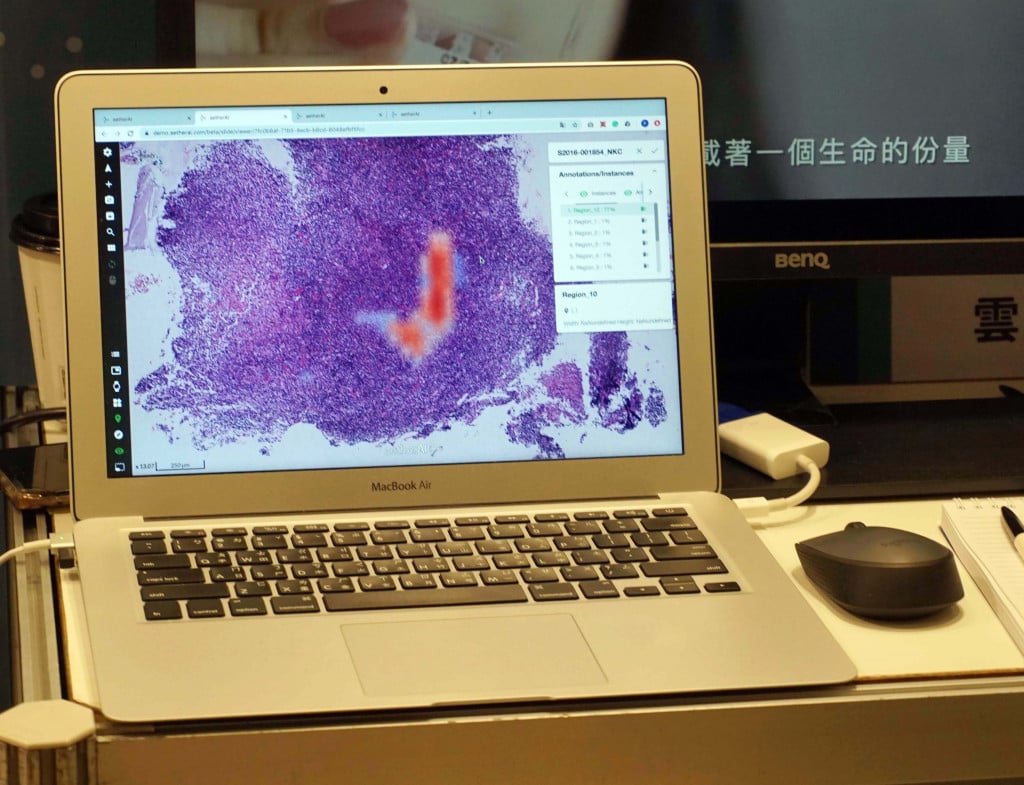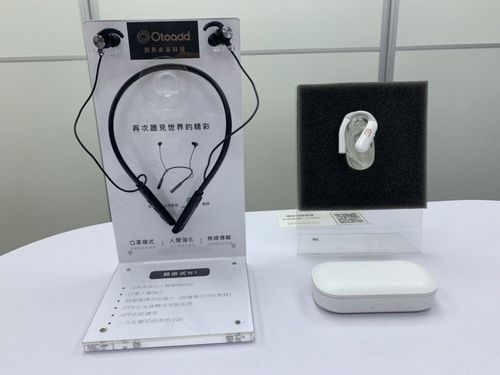【2020 Solutions】 AetherAI's Digital Pathology AI Solutions Enhance Healthcare Quality and Reduce Physician Workload
In the medical imaging AI industry, an increasing number of startups are emerging, among which AetherAI has recently attracted attention. At last year's MICCAI, an international medical imaging conference, AetherAI's digital pathology AI defeated Stanford University's team, aiming to utilize artificial intelligence to achieve precision medicine and alleviate the burden of time-consuming tasks on physicians.
Providing digital pathology solutions to meet artificial intelligence application needs
Led by Dr. Zhao-Yuan Yeh, AetherAI, though only a few years old, includes members skilled in both healthcare and technology, possessing strong interdisciplinary integration capabilities. They excel in medical research, data science, software development, systems engineering, and medical knowledge and information technology, committed to offering solutions for digital transformation in pathology and AI-assisted diagnostics. With digital pathology becoming a milestone in the development of whole-slide imaging technology, AetherAI has introduced the aetherSlide system solution. Besides developing digital slide management and viewing systems, it also integrates image annotation, deep neural network inference, and training functionalities, thereby fulfilling the needs for AI module applications and development.

▲ Although AetherAI has been formed only a few years ago, it has recently gained significant attention in the medical imaging AI industry. Just recently, Dr. Zhao-Yuan Yeh, Co-founder and CEO, was awarded as one of Taiwan's Top 100 MVP Managers. (Photo credit: AetherAI's Facebook page)
A key feature of the digital pathology system is the customizable digital slide status bar, which can sort cases by priority, urgency, etc., thus providing clear visibility and facilitating time management. The interface is also user-friendly, offering hotkeys combinations, one-click slide assembly, along with tools such as rulers, magnifiers, and seamless rotations that enhance consultation or discussion efficiency. Regarding AI services, it offers applications like cancer detection and quantification, immunostaining quantification, and blood cell classification counting. Cooperation between AI and physicians minimizes repetitive work, and the system supports extensive training annotation features with various selection modes, multi-category tagging, and freehand drawing. Annotations integrate seamlessly into deep learning training, structured format output, and AI training data generation in everyday processes.

▲ Last year, AetherAI developed an AI medical imaging development platform (aetherAI), notable for its diagnostic automation, providing an end-to-end digital pathology AI development process. (Photo credit: AetherAI's Facebook page)
It is worth mentioning that the digital pathology system supports robust management functions, especially capable of being integrated according to the hospital department's work assignment process, and even with existing hospital information systems, this saves man-power, enhances administrative efficiency through digitization. In terms of file formats, it supports multiple brands of slide scanner types and whole-slide image formats like svs, ndpi, scn, mrxs, bif, tif. Additionally, to reduce the burden of long-term storage in medical facilities, AetherAI's infrastructure supports significant expansion capabilities, offering scalable options based on user needs, and supporting local and data center options for long-term storage solutions.

▲ AetherAI's digital pathology system boasts strong management features and supports various brands of slide scanners, enhancing workflow efficiency through digital operations.
AetherAI Digital Pathology AI Applications Reduce Doctor's Burden and Enhance Productivity and Consistency
At the recent AI HUB conference, AetherAI demonstrated its AI medical imaging development platform launched last year (aetherAI), its main feature being diagnostic automation. This allows departments within hospitals to integrate various types of DICOM files and medical knowledge, boasting a highly scalable AI model capability, and providing an end-to-end digital pathology AI development workflow. Currently, it offers digital pathology AI modules including automated bone marrow smear classification, nasopharyngeal carcinoma recognition, and glomerulus detection applications, involving nearly ten different types of datasets. So, what are the tangible benefits for doctors? Simply put, with a prior scan using AI, cancers can be confirmed without the lengthy manual review previously typical in bone marrow exams, thus greatly shortening repetitive tasks for doctors and enhancing efficiency in complex diagnoses. Currently, aetherAI has reached recognition levels comparable to a pathology doctor's visual assessment standards, achieving an identification rate as high as 97% for nasopharyngeal cancer.
▲ AetherAI's AI medical imaging development platform (aetherAI) can significantly reduce repetitive tasks for doctors, leading to more efficient and effective high-complexity diagnoses.
Currently, AetherAI's partners and customers mainly include large medical centers, with the University of Pittsburgh Medical Center leading internationally. In Taiwan, includes major medical institutions such as Taipei National University Hospital, Taipei Veterans General Hospital, Chang Gung Hospital, Cathay General Hospital, Tri-Service General Hospital, Chung Shan Medical University Hospital, Taipei Medical University Hospital, among others, aiming to use artificial intelligence for precise medical applications, enabling deep learning in clinical practice to reduce the workload for doctors and elevate the consistency of medical quality.
「Translated content is generated by ChatGPT and is for reference only. Translation date:2024-05-19」


